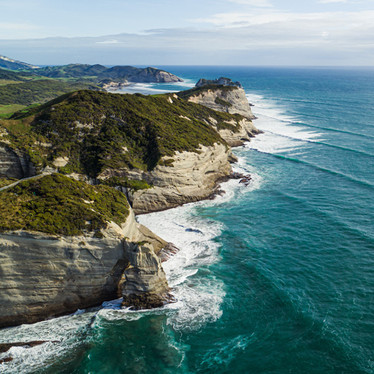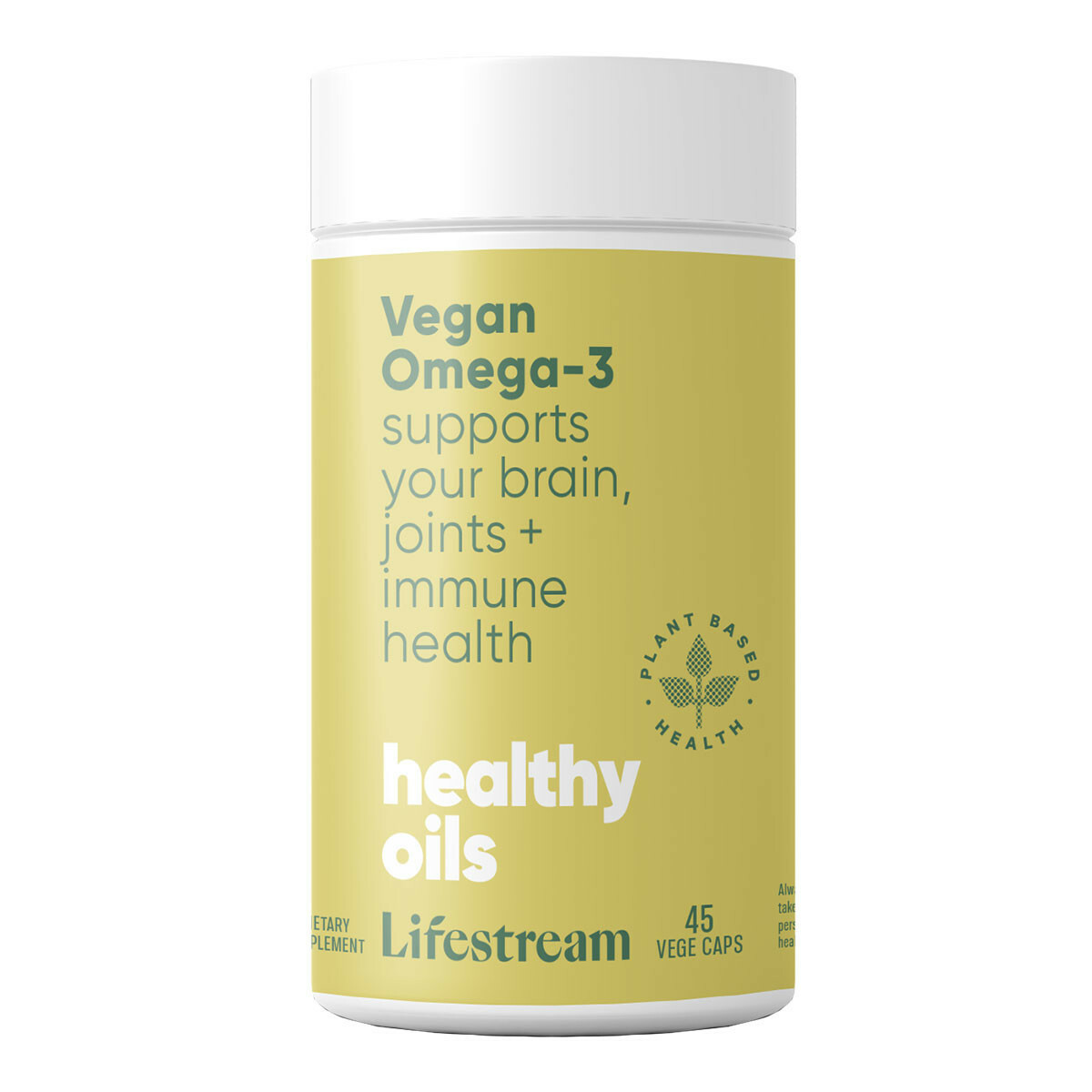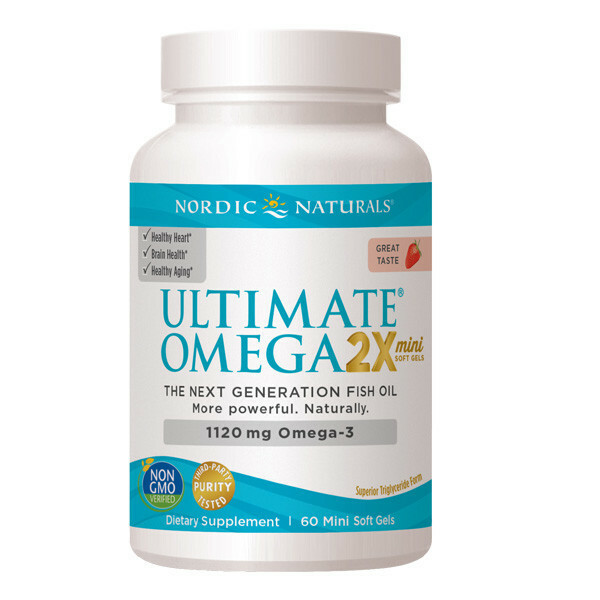
Lucy Butler, HealthPost Values Lead, shares how HealthPost is committed to marine life and coastal conservation, and how your support makes a positive impact.
How is HealthPost committed to marine and coastal conservation?
At HealthPost, our vision is to have a lasting, positive impact on people and planet – and that of course includes ocean health.
Our business has been based in the small seaside community of Mohua Golden Bay since it began 35 years ago: we are always in the presence of marine and coastal ecosystems here which keeps us connected to both their value and their vulnerability.
The HealthPost Nature Trust was founded in 2017 to work with Manawhenua ki Mohua and the Department of Conservation to protect and reintroduce threatened coastal species in our remote area.
We work with burrowing seabirds like the pakahā fluttering shearwater and tītī sooty shearwater, as well as protecting remnant populations of kororā little blue penguin.
We have trained HealthPost team members as Marine Medics so we can work effectively alongside Project Jonah in whale stranding events at Farewell Spit, and the HealthPost Nature Trust field station serves as a base for whale rescue teams. We have frequent sightings of a rare population of pygmy blue whales out from the Wharariki Ecosanctuary, our haven for seabird reintroductions.
We have funded research into the ‘blue carbon’ potential of the seagrass meadows in our project area at Onetahua Farewell Spit. These meadows are an estimated quarter of the seagrass in Aotearoa and an important carbon sink.
These are just some of the ways that we take action locally and beyond for the health of our oceans and coastlines and their stunningly diverse inhabitants.
How do your choices impact the health of our coasts and oceans?
Through our responsible product sourcing and strict range standards, we make ethical choices easier, and this benefits the environment. Our ingredients standards focus on removing the harmful chemicals from household and personal care products that ultimately end up in our waterways and oceans, like chemical SPFs that we now know can damage reef health.
HealthPost is well-recognised for raising the bar in the natural products industry in Aotearoa. We apply rigorous product standards across our entire range, lead ethical conversations with our suppliers, and counter greenwashing by insisting on full and transparent product information. We also champion brands that are mindful with their packaging and transparent about their impact.
Our eco-living range has many easy sustainable swaps (like stainless steel straws, pegs and bamboo toothbrushes that are staples in our household) to minimise plastic, and some of our favourite Mindful Brands are working directly to improve the health of our oceans.
Goodbye Ouch – give back to Oceans Watch, a NZ non-profit working with coastal communities to sustainably manage their resources for the benefit of the ocean and community.
Like Goodbye Ouch, HealthPost is proud to be part of international B Corp Community, using business as a force for good. As a certified B Corp, we have legally undertaken to consider the environment as a key stakeholder in our business decisions, so the oceans get a say!
BBBYO is another brand we’re happy to partner with who work actively to reduce plastics in our oceans through both their product range and raising awareness of coastal conservation.

HealthPost has made the mindful decision to discontinue krill products – why?
We’re committed to regular critical review and evolution in our supply chain standards, as more information becomes available and situations change over time, especially with climate impacts.
In light of our coastal conservation efforts and after considering recent studies on the impacts of krill fishing, we’ve decided that selling krill oil products no longer aligns with our vision and values.
While the independent research on which we based our marine sustainability standards five years ago indicated that krill fisheries in the Southern Ocean were operating at sustainable levels, we were recently made aware of direct negative impacts on the very species we’re working to protect.
Recent studies suggest that even low levels of krill fishing in the Southern Ocean can impact penguin reproduction and growth. There are reports of juvenile humpback whales, as well as seals and seabirds, being caught in krill trawls as the fishery becomes increasingly concentrated in the same areas where these at-risk Southern Ocean species forage. This has caused us to review our policy and to look more deeply at the potential ecosystem and climate impacts of krill fishing.
Why are krill so important to the health of our oceans and climate?
The Southern Ocean comprises 10 percent of the Earth’s ocean and its health is crucial for the overall wellbeing of our planet. Krill are a keystone species of the Southern Ocean and many at-risk species rely on them for their survival. This ecosystem is being especially impacted by climate change, and krill play an important role in storing carbon. HealthPost is certified Zero Carbon and has funded research into carbon stored in marine environments as well as investing in regenerating native forests. We are deeply committed to understanding the impacts of our supply chain on the climate and taking these impacts seriously.
The current sustainability issues with Southern Ocean krill fishing, we understand, are not to do with overall krill abundance or catch limits. Instead, they concern fishing practices in which vessels compete for catch in small areas of krill concentration that overlap with naturally foraging krill predators. This issue is being exacerbated by the climate induced changes to sea ice distribution, and reduced sea ice is forecast to profoundly impact krill sustainability, as sea ice is critical for the Antarctic krill lifecycle. Other threats facing krill include ocean warming and ocean acidification, both of which are caused by climate change and effect krill abundance and distribution.
While the impact of current krill fisheries on this vulnerable ecosystem is ultimately unknown, we do know that even modest fluctuations in krill availability can cause marine predators to compete with fishing vessels, increasing by-catch and reducing breeding success.
These climate and ecosystem pressures highlight the need for the network of Marine Protected Areas (MPAs) in the Antarctic Peninsula and Weddell Sea regions. The krill fishery contributes to the reluctance to implement these much-needed MPAs, which would be a huge win for Southern Ocean conservation.
We humans can choose how we get important omegas in our diets. Being mindful that this critical Southern Ocean ecosystem and its extraordinary marine biodiversity relies on krill for its survival, we can make different choices.
What are your favourite sustainable ways to supplement Omega?
Omega supplementation has many benefits, and I personally notice an improvement in mood, skin, and mental focus in the whole family when we’re topping up on Omega 3 fatty acids. To strike a balance between our health needs and sustainability considerations, we take a small amount of highly concentrated marine-based DHA, and make the algae-based Vegan Omega, and plenty of Waihi Bush flax oil, our main supplementary sources
Here are a couple of products that work for us, and please do check out our plant-based omega to match your health goals shopping guide that our naturopath Rebecca has put together.
My omega favourites
Lifestream Vegan Omega-3
- 5-star customer favourite
- Excellent for brain, joint, and skin health
- Sustainable omega option
"This vegan Omega is a staple for us. I love that it’s sourced from microalgae and I notice the difference in mood, mental focus and skin health for me and the kids. Being algae-based there are no issues with fishy aftertaste here and I respect the innovative, ethical Lifestream brand for making this clean Vegan Omega available in Aotearoa."
|
Nordic Naturals Ultimate Omega 2x Minis
- Exceptionally high-dose of omega-3
- Support for brain, immune, and heart health
- Easy to swallow, strawberry flavoured mini soft gels
"This is a great, high-strength omega 3 option that is so easy to take. My kids aged 7 and 10 are happy to swallow one of these small, strawberry flavoured caps with a meal. I notice a lift in mood, skin health, and immune wellbeing, and they taste really fresh with no fishiness and contain only natural flavours.”
|
Want to get involved with coastal conservation?
Thank you for doing your bit to help protect our precious oceans and vulnerable marine ecosystems. From the products you choose to the organisations you back, your daily mindful choices count.
We love the mahi of these sustainability champions who are taking a stand for our oceans. You can learn about their important work and get involved:
- WWF
- Legasea
- Sea Shepherd NZ
- Sustainable Coastlines
- Ocean Conservancy
- Our Seas Our Future
- Catch Fish Not Birds
Every industry has its unintended consequences, and as retailers and consumers we can only keep doing our best to make ethical choices with the information available to us, based on our personal values and resources. It’s a journey, as they say, and we appreciate your understanding as we continue to evolve in this area.
Thank you for the inspiration you provide for us to keep making mindful, healthy choices easier for all.
|



